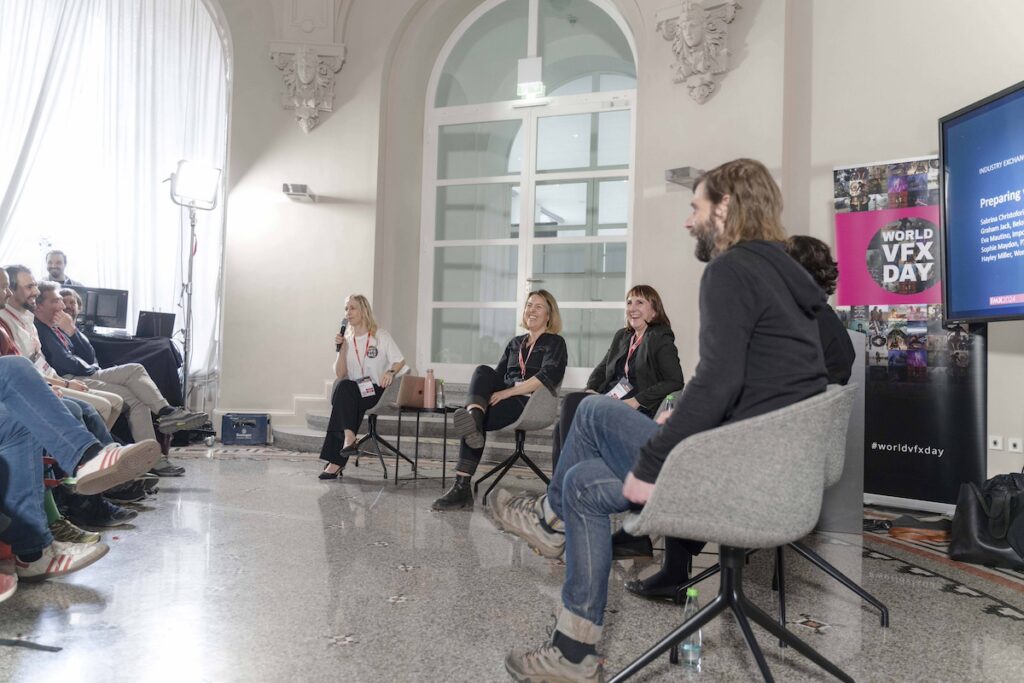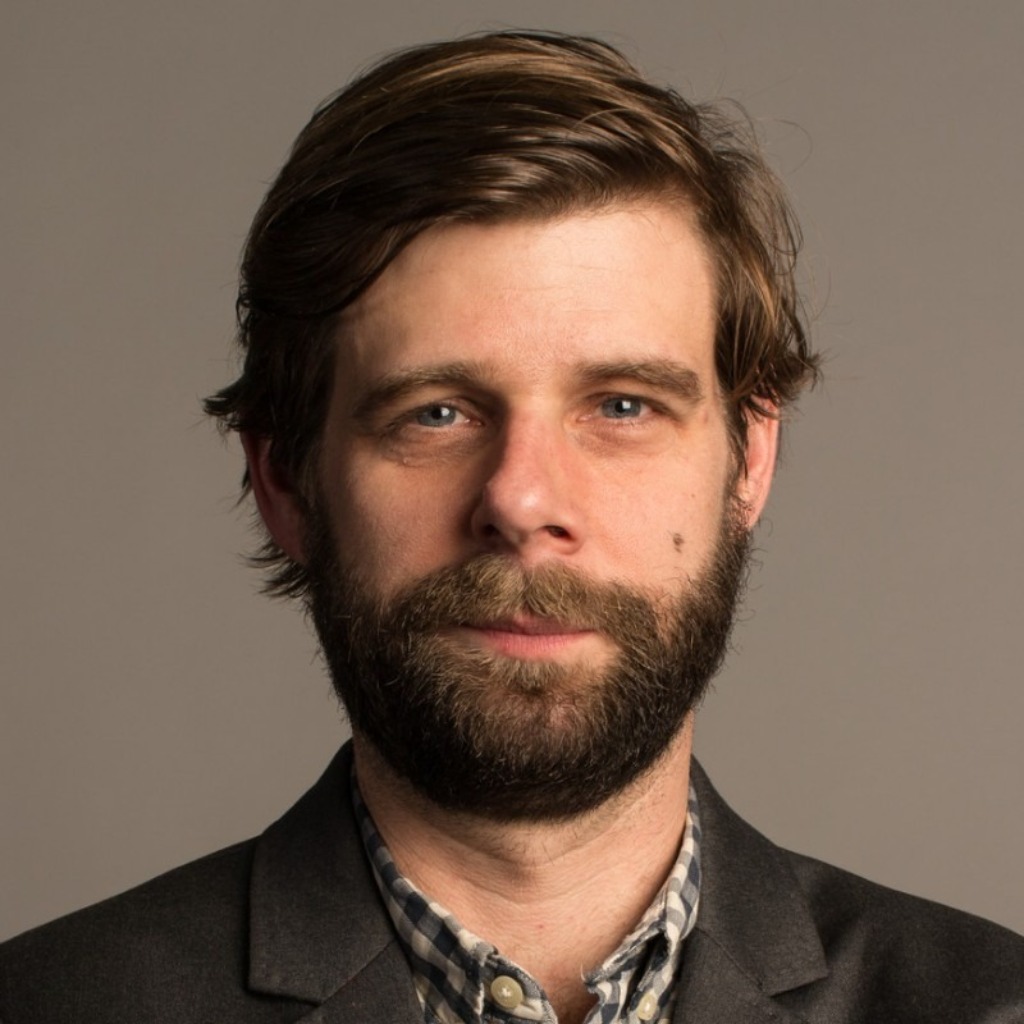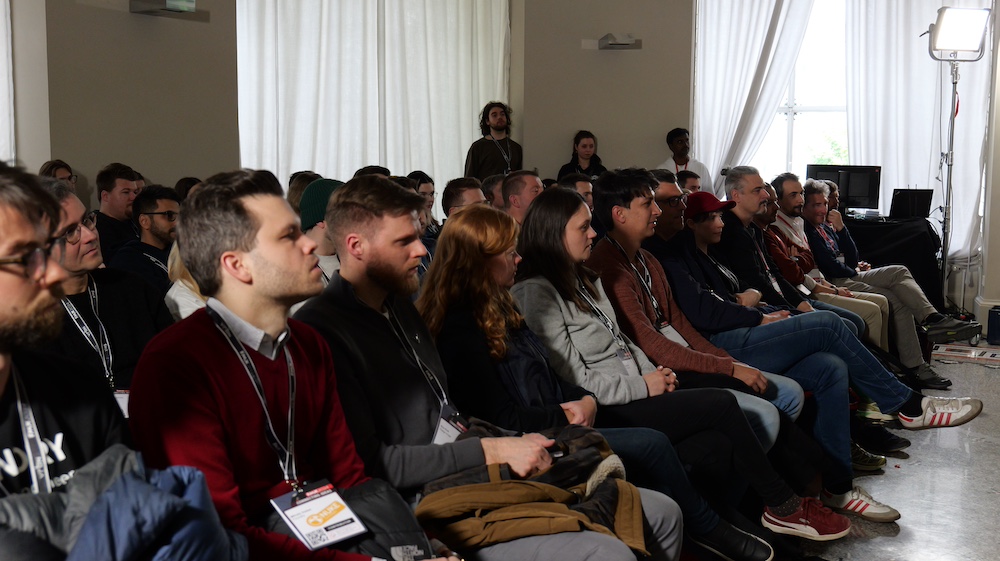
We were lucky enough to go to Stuttgart for FMX (Film & Media Exchange) in April. Over 270 speakers and 3,600 participants walked through the doors of the historic Haus der Wirtschaft, over 4 days where we hosted a talk on ‘preparing for growth’ aimed at small to medium-sized companies wanting to prepare their teams for growth and ensure they have the operational efficiency and talent, to help lead the way to success.
Our panel, hosted by World VFX Day Founder, Hayley Miller, included Graham Jack, CTO at beloFX, Eva Mautino, CEO at Important Looking Pirates, Sabrina Christoforidis, Head of studio – Europe at Pixomondo, and Sophie Maydon, Founder at PXL Talent.
Here are some highlights from the topics we discussed, ranging across business strategies, operational efficiency, technology, AI, talent acquisition and culture.
On business strategies...
Sabrina: I think this business is not doable if you’re not flexible. Everything is open to change, from shows to timelines, and market landscape to technology. You have to constantly adapt and believe in such a thing as creative DNA, that is what keeps it exciting.

on funding and investment...
Graham: There are all sorts of ways you can start a business. You can bootstrap off one project and gradually build it up.. Or, if you’ve got energetic founders, you can build it up through sweat equity and lay the groundwork to develop the company. Another option is to bring in different types of investors. Choosing what’s right for your business depends on your vision and what is achievable.
For us, we wanted to get going quickly. We didn’t want to have thousands of people, but we certainly wanted to get to a place quite quickly where we could do exciting shows. That’s what drove us, that’s what we were passionate about, and so for that kind of vision to grow that fast in a couple of years, you do need some kind of capital. But you could equally build more slowly and work on smaller projects, which is also totally valid.
Eva: We’re an independent studio and 16 years strong so far. We have an organic growth approach and find the right projects and the right people. We’ve grown from 4 founders to 200 pirates today. It took years, but we are still doing well. Of course, every now and then, especially with the ups and downs in the industry, we do have discussions around needing extra safety, so these are ongoing discussions that any company will have and then you just need to align on what’s next and what kind of growth you want.
on operations and technology...
Graham: You have to pick your battles, because I think visual effects pipelines are pretty much mathematically proven to be impossible to fully solve! You will always be changing and improving to make things more efficient. It’s important to identify the things that are really going to add value to the business as that’s what you should be prioritising.

Another thing is to try and resist the curse of the per user cost. Everyone wants their favourite tool, whether it’s Miro for drawings or Gmail, Zoom or Slack. All of those things seem like small costs when you’re small, but there’s a point where suddenly you’re spending a million dollars a year on software that’s not actually driving value for your core business.
Sabrina: The road to success is utilisation. Invest in planning tools, ask who’s doing what and who’s becoming available, we’re continuously looking at this.


on pipelines...
Graham: What we’ve tried to do at beloFX is to keep the pipeline as lean and familiar as possible, because you don’t want to increase the time it takes to get people up to speed. It’s good to be mindful of any proprietary plug-ins, as these can cause big delays when it comes to upgrading or adapting software. We ultimately want to make it easier for artists to do their job.
on AI...
Graham: The VFX industry to me is founded on very smart people doing clever things, so every time a new tool comes along people will learn it and blow us all away with what they create, and AI is no different. We’re in an experimental stage at the moment and it shows that you need talented technical and creative people to use these tools and I don’t think AI is going to change that equation.
On the operations side, we’ve done small tests here and there through Google Workspace and Gemini. It isn’t quite there yet, but I do hope it will help us with the more mundane tasks overall.
Eva: There’s an upside for using AI for anything that can be automated. It still seems too early, but I’m keen to see how it evolves, especially on the admin/operation side.
On company culture...
Eva: Everyone is still learning how to handle hybrid working but if you have a good culture and ambassadors then your culture can translate through hybrid working as well. In person meetings are still very important to create connections so once a year we get everyone at ILP together for ‘Pirate Week’.
Graham: Our business was born in the wake of COVID so we all started remotely. We’re a remote-first studio, but we still have offices and get togethers. It’s important no-one feels left out because they are not “in the room”. Remote working works for some and less so for others, but we’ve been able to work with some amazing people around the world because of it.
My advice is to hold your nerve when recruiting key team members, lots of technical roles are hard to hire for because they’re not necessarily looking. The tech skills are important but those who are a good culture fit and energy for us is really key. It can be nerve wracking to take the time to find the right people, but we got there in the end, because we waited.

Sabrina: What attracted me to VFX is the team spirit and being together, there would always be someone around to help you and look at your work. During COVID it was worrying not knowing if we’d be able to deliver projects but I was proven wrong and we found lots of positive things from how we worked throughout that period. We’re now used to working with people globally and interacting differently so I don’t think we’ll ever be 100% back in the office but we are always looking at how we can get together and keep that culture.
On Building successful teams...
Sophie: Having a business strategy that everyone agrees with is a good start! Make sure everyone knows what the short and long term goals are. With smaller companies you often have people wearing many hats, but there’s a tipping point when it makes more sense for people to focus on what they’re good at and bring in more people with other skills to help drive your business forward.
Eva: When creating a tight management team you need to find who has the right skills and knowledge to tackle any challenges ahead. It’s also important to build trust and delegate.
Sophie: It takes time to find the right person for the role, but being well prepared and briefing recruiters fully really helps save time. Have an accurate job description with the key set of skills you’re looking for, but also build a bigger picture of that role and ask yourself:
- How does that role fit into the strategy, what will be the key challenges and how could the role develop.
- How many stages of the recruitment process will there be and in what format, think about the whole process and what is expected.
- How can we ensure everyone receives clear feedback, as it demonstrates integrity and builds the employer brand.
- What is your compensation and benefits framework and how does your company stand out from competitors.
Being aware of that will mean that you know how you will sell the company to talent. Sometimes it doesn’t work out but it’s important to reflect on that and adapt for future recruitment strategies.

